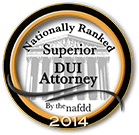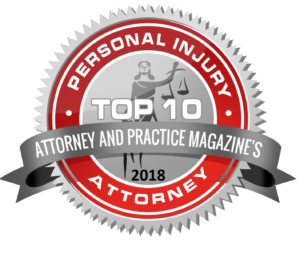When it comes to bus accidents in Virginia, understanding the critical role that witness testimonies play is essential. These accidents can cause serious injuries, and in some cases, tragic fatalities. Determining fault and liability is a complex process, but one thing is certain: witness testimonies often make a significant difference in the outcome of a claim. In a state like Virginia, where bus travel is common, knowing what a witness can add to a case and how that information is gathered can help people understand the legal process better. For anyone involved in a bus accident, whether they were on the bus, in another vehicle, or a bystander, having witnesses who can offer reliable information can be invaluable. At, NovaLegalGroup, P.C., we are here to guide you through the legal process and help you navigate the complexities of your case.

What is a Witness Testimony?
A witness testimony is simply a person’s account of what they saw, heard, or otherwise observed related to a bus accident. When a witness shares their experience, they provide insight into how an accident happened. The story they tell can support or challenge other evidence, such as police reports or accident reconstructions. For example, a witness might remember seeing a driver acting distracted just before the accident, or they may recall specific weather conditions that affected visibility. Witnesses can be anyone who was present at the scene, including pedestrians, other drivers, or even passengers on the bus.
Witness testimonies are often given in statements, either at the scene of the accident or later, during the investigation process. These statements are then used by attorneys, insurance companies, and sometimes courts to determine what happened. The reliability and relevance of a witness’s testimony can have a large impact on the case. Courts and insurance companies tend to give weight to firsthand accounts, especially if the witness had a clear view of the events or was able to see something others missed.
How Witness Testimonies Influence a Bus Accident Claim
Witness testimonies can significantly shape the direction of a bus accident claim. For those involved in an accident, the information provided by witnesses helps to establish who was at fault. In Virginia, fault-based insurance laws require that the person responsible for causing the accident cover the damages. Witnesses who can describe the actions leading up to the accident make it easier to establish fault. For example, if a witness saw the bus driver failing to stop at a red light, that testimony can support a claim that the bus driver’s actions caused the accident.
A witness testimony can also offer additional context that might not be visible in photos or physical evidence. For example, a witness may mention that the bus was moving unusually fast, or they may describe other specific details that would not appear in other records. When these details are brought to light, they help attorneys build a strong argument to support their client’s side of the story.
The Role of Witness Testimonies in Proving Negligence
To file a successful bus accident claim in Virginia, a person usually needs to show that someone acted negligently. Negligence refers to a person’s failure to act with reasonable care, leading to harm for someone else. In a bus accident, negligence might involve speeding, not following traffic signs, or failing to maintain the vehicle properly. Witnesses can be vital in demonstrating these negligent actions. Their statements can describe behaviors or situations that might otherwise go unnoticed.
For example, if a witness reports seeing the bus driver looking down right before the crash, it could suggest that the driver was distracted. This could be used to argue that the driver’s negligence caused the accident. Witness accounts may also help to show whether road conditions or other drivers contributed to the incident. By providing a clearer picture of what happened, witnesses help prove that negligence was the direct cause of the injuries and damages suffered.
Why Witness Credibility Matters
Not all witness testimonies are equally impactful. For a witness’s testimony to be considered reliable, the witness must be credible. Credibility means that the witness is trustworthy and that their account is believable. Courts and insurance companies often look at several factors to determine credibility, such as how close the witness was to the accident, how much attention they were paying, and whether their statements match the physical evidence.
Sometimes, witnesses may have a clear and consistent story, while others might be unsure about certain details. A credible witness is typically one who has a consistent account of events and can recall specific details without contradicting themselves. The credibility of a witness can be weakened if they appear biased or if they have a reason to favor one side. Attorneys from both sides of a case might challenge a witness’s credibility, trying to show that their version of events should or should not be trusted.
Types of Witnesses in Bus Accident Cases
Witnesses in bus accident cases generally fall into different categories. One type of witness is the bystander who happened to be nearby. These individuals can give an objective view of what happened because they were not directly involved in the accident. Another type is the passenger witness, who may have been on the bus at the time of the crash. Passenger witnesses can give valuable insights into the actions of the bus driver or the condition of the bus. While their view might be limited, their perspective can be useful in understanding the driver’s behavior leading up to the accident.
Other drivers who were also on the road can serve as witnesses too. Their testimonies can explain road conditions, traffic flow, and the actions of other drivers. Sometimes, even specialists, like accident reconstructionists, are brought in to serve as witnesses to explain technical details. Each type of witness has a different perspective, and combining these perspectives can create a clearer picture of the accident for everyone involved in the claim process.
Choosing a Personal Injury Attorney Personal Injury Case TimelineRelated Videos
The Process of Gathering Witness Testimonies
After a bus accident occurs, gathering witness testimonies is one of the most important steps in building a claim. Witnesses should be interviewed as soon as possible to capture their immediate recollections. Attorneys, insurance companies, or investigators typically reach out to witnesses to collect their statements. Sometimes witnesses may be reluctant to give testimonies, especially if they fear legal involvement. However, having these testimonies can be crucial in determining what really happened during the accident.
During the collection process, witnesses may be asked a series of questions to help clarify details. These questions often focus on where the witness was standing or sitting when the accident occurred, what they saw just before the impact, and if they noticed any unusual actions by the drivers involved. Once collected, these statements are analyzed to see how they align with other evidence. Attorneys may use them to support their arguments or to refute claims made by the other party.
The Importance of Timely Witness Statements
Timing is important when it comes to collecting witness testimonies. The longer it takes to gather statements, the more likely it is that a witness’s memory may fade. Witnesses may forget crucial details, or they may unintentionally change their story as time goes on. Collecting testimonies as soon as possible helps to ensure that the information is as accurate as it can be.
Virginia has a statute of limitations, which is the time limit in which a person can file a claim after a bus accident. Because of this deadline, witness statements need to be gathered promptly to avoid delays in building the case. Attorneys prioritize gathering witness testimonies early on to protect their client’s right to pursue compensation.
How Attorneys Use Witness Testimonies in Court
If a bus accident claim goes to court, witness testimonies can become a powerful tool. Attorneys use these statements to present a strong case in front of the judge or jury. A witness may be called to testify, where they are asked to share their account under oath. Attorneys may question witnesses to help them recall specific details, and opposing attorneys may cross-examine them to test the reliability of their statements.
Witness testimonies are often combined with other evidence, such as accident reports and medical records, to paint a complete picture of the accident. A well-prepared witness who confidently shares their account can make a significant impact on the outcome of a case. Courts value testimonies that are clear and factual, and attorneys work to ensure that witnesses are prepared to give an accurate account of events.
Why Witnesses Should Cooperate After a Bus Accident
Witnesses are not legally required to cooperate after witnessing a bus accident, but their cooperation is often essential for justice to be served. When witnesses agree to share their stories, they help accident victims get the compensation they need to recover. A witness’s role may seem small, but their information can have a major impact on the lives of those affected by the accident.
By choosing to provide a statement, witnesses play a part in making sure that responsible parties are held accountable for their actions. In Virginia, where bus accidents can cause serious harm, having witnesses willing to cooperate can lead to more accurate investigations and fair outcomes. Witnesses contribute to a fair legal process and help accident victims get the help they deserve.
If you or a loved one has been involved in a bus accident in Virginia, understanding the value of witness testimonies can make a difference in your claim. Witnesses offer valuable perspectives that can strengthen a case and clarify the events surrounding the accident. At NovaLegalGroup, P.C., our team understands the importance of gathering and presenting reliable witness statements to support your claim. If you need assistance with a bus accident claim, contact us today to learn more about how we can help you secure the compensation you deserve.










